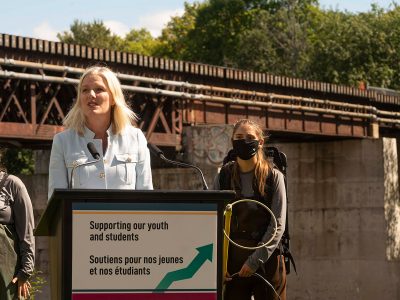By David Matsinhe
Having ruled Mozambique since 1975, the country’s governing party, Frelimo, feels backed into a corner. It behaves as though it must fight any challenge to its hegemony by whatever means necessary. This includes aggression and violence.
Hence the sombre state of human rights that has formed in the past five years. Mozambique has witnessed intimidation of civil society, arbitrary arrests and detentions. Security forces have used excessive force and there have been incidents of torture and extrajudicial killing. Freedom of expression, peaceful assembly and association has been suppressed.
In 44 days of the election campaign, 44 people were killed – one person’s death for every day of campaigning. In addition 271 were injured, about 59 were arrested and property was destroyed.
Since the end of the civil war in 1992, Mozambique has held five general elections. Frelimo has won them all, with Renamo in second place and since 2009 the Mozambique Democratic Movement also in the fray.
The background of rights abuse has cast its shadow into the current electoral cycle. To mention some salient cases:
-
On 7 October, members of the special operation of the riot police publicly executed Anastacio Matavele, an election observer in Xai-Xai, 200km north of the capital, Maputo.
-
On 11 October, Augusto Pelembe, the Mozambique Democratic Movement candidate for governor in Maputo province, escaped an assassination attempt in broad daylight in Malwana, 50km north of Maputo.
-
On 16 September, unidentified men petrol-bombed Manuel de Araujo’s mother’s house. Araujo is Renamo’s candidate for governor in Zambezia province.
-
On 6 September, three unidentified Frelimo militants assaulted a primary school teacher and Renamo member, Aristides da Conceição, and his wife Raina Leão in Zambezia.
In addition, voters, civil society and opposition parties in various provinces accused Frelimo members of collecting voter registration cards. This created confusion among uninformed voters. According to the law, they were allowed to vote if they carried other identification documents. Many voters didn’t know this.
During the campaign, partisans of all political stripes were responsible for the violence. But Frelimo supporters were far more aggressive and violent. Nevertheless, it would be a mistake to interpret their war-like posture as a sign of strength. On the contrary, their deadly violence signals their weakness and betrays their vulnerability and desperation.
Underground, the political tectonic plates are shifting, while above ground the political fortunes are changing. The centre cannot hold.
A change in power dynamics
Frelimo’s tendency to direct violence towards its political opponents is a symptom of underlying structural transformations which the political sociologist Norbert Elias has described as
diminishing contrasts and increasing varieties.
Elias argues that when unequal political groups become less unequal, the formerly powerful groups tend to become more aggressive and violent toward the formerly weaker groups.
The most recognisable feature of this in Mozambique is the pressure towards decentralisation of political power which began with the election of city mayors. From now on, provincial governors will be elected by the people rather than being appointed by the winning party.
On top of this, the incumbent is facing more politically conscious voters. They are better educated, informed, mobilised, organised, and demanding.
Electoral rigging
A popular slogan within the ranks of Frelimo is: “A vitória prepara-se”, – “In order to win, one must prepare the victory.”
Frelimo began to “prepare the victory” right at the beginning of the electoral process, the voter registration stage.
In Gaza province 286,000 extra voters were registered, giving Frelimo and president Filipe Nyusi a 6% bonus in the expected total vote. While the 2017 population census showed that Gaza had 830,000 people of voting age, the electoral secretariat claimed there were 1.116 million registered voters in this province. This implied that the 2017 national census had missed 286,000 people aged 18 and above in the province.
This was so out of bounds that the National Statistics Agency was forced to defend the census. It rejected and denounced the electoral administration’s numbers. It pointed out that according to “scientific methods”, Gaza’s voting-age population is projected to reach the electoral administration’s numbers in 20 years. The statistics agency’s director was immediately sacked, though an official statement said that he had “resigned due to political pressure”.
The electoral administration also dispatched extra voter registration brigades in Gaza and Maputo. In these provinces the numbers appeared inflated. They are also the regions in which Frelimo has won all past general elections with wide margins. Curiously, the electoral administration failed to provide additional voter registration brigades in Nampula and Zambezia. These provinces have the largest and second-largest voting-age populations. They are also where Renamo and the Mozambique Democratic Movement enjoy more popular support than Frelimo.
The opposition and civil society reorganisations have pointed with disapproval to these “victory preparation” activities. They have also questioned the possibility of a free and fair election. So far, polling is peaceful, but vote counting may not be. Mozambicans are bracing themselves.
Sipho Mantula also contributed to this article. He is a researcher at the Institute for Dispute Resolution in Africa, University of South Africa. The views expressed in this article are those of the authors and do not represent those of the institutions to which they are affiliated.
This article is republished from The Conversation under a Creative Commons license. Carleton University is a member of this unique digital journalism platform that launched in June 2017 to boost visibility of Canada’s academic faculty and researchers. Interested in writing a piece? Please contact Steven Reid or sign up to become an author.
All photos provided by The Conversation from various sources.
![]()
Wednesday, October 16, 2019 in The Conversation
Share: Twitter, Facebook



